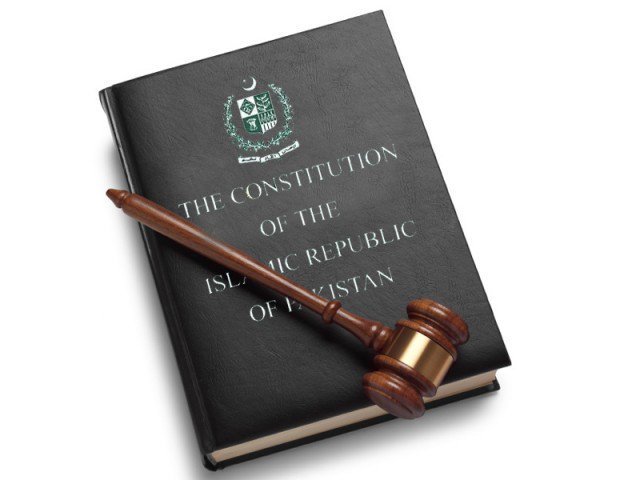Hamza Wyne
There is a lot of debate about the 18th amendment in the national discourse these days. A neglected aspect of this discussion is the fact that apart from bringing reforms in the political sphere of the country, this amendment has also restructured the education system — by splintering the hierarchy and clipping the spreading tentacles of the federal system. It gives the provinces ascendancy over its institutions and resources, which are facing a cluster of issues under the federal dispensation.
The inclusion of Article 25-A makes it necessary for the state to impart education to every individual in the country; making education a basic right, which should be given by the state. Keeping in mind the ever-widening gap between the dazzling rich and the disposable poor, this sort of reformation is direly needed.
The callousness of having a centralised education system is evident from the fact that 25 million children are out of school in Pakistan, a figure that stands in gross violation of the Article 25-A. Those who are enrolled at government institutions are getting education in wretched conditions due to lack of funds and resources.
The amendment provides strong enough break to the venal elements of the education system — private institutions — which thrive on profits made by charging students hefty amounts of fee; and have always repudiated the idea of having firm and free education provided by the state in the public sector, let alone having it enshrined in the Constitution.
These institutions have become so privatised that they themselves have become the new market, with their shareholders and partners driven by self-interest, pushing the public sector in the shadows.
Another ramification in the education system is that the drafting of curriculum and its related policies will fall under the authority of the provinces. Doing this would quashes the myths and long-held beliefs that are indoctrinated into the minds of the students at a young age, by giving a more realistic perspective of the part of the world in which they are living in.
Since every province has a different history, there won’t be any perverse national history or ideology that would prevail and expand through textbooks.
While the federal flags up the inefficiencies of the provinces at carrying out these functions, it should be noticed that the centre itself has failed miserably. The quality of the curriculum is in a state of free-fall, rote learning is pervasive and students are not encouraged to think rationally and critically. By no means, the center has lived up to the standards that it demands from the provinces.
The amendment, as a whole, leaves little space for the federal government to squander public money — which it would have otherwise — by snipping its fiscal space, that would allow the provinces to manage their affairs , and spend their money to provide for basic needs and rights of the people; education being one of them.
The amendment makes it possible for the provinces to come up with a framework that devolves power to the people living in the lower strata so that individual of every stripe —students, labourers and daily wagers—can have a say in the matters and policies affecting them, which would enforce the politicians and policymakers to formulate policies which encircle public interest.
With the on-going pandemic providing the increasing flow of new problems, it is essential to enact the 18th amendment in order to give a sigh of relief to the already reeling education system, and to the students that it provides education.
The Students’ Herald News Desk focuses on reporting the latest news regarding student politics and campus updates to you.
The News Desk can be reached at admin@thestudentsherald.com




